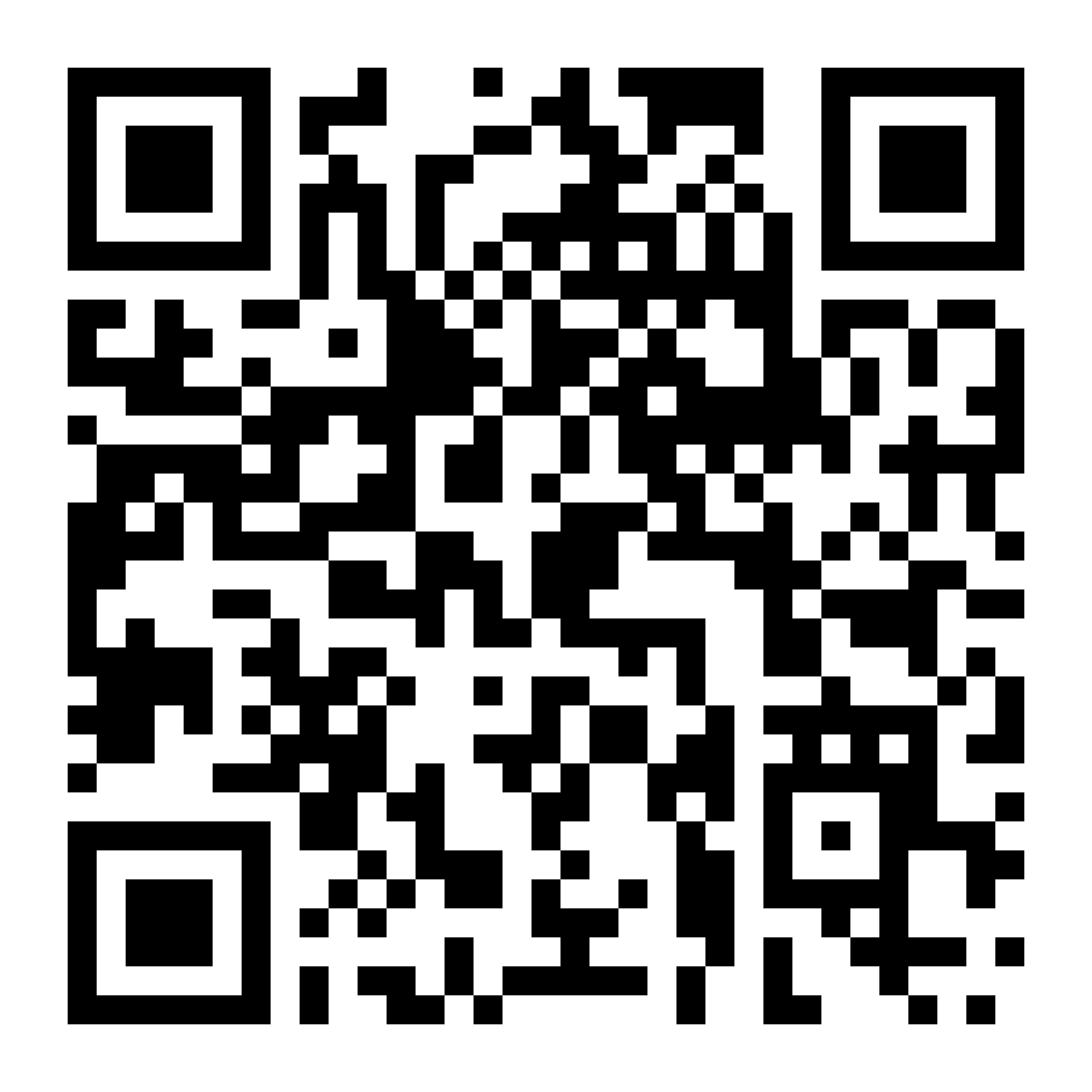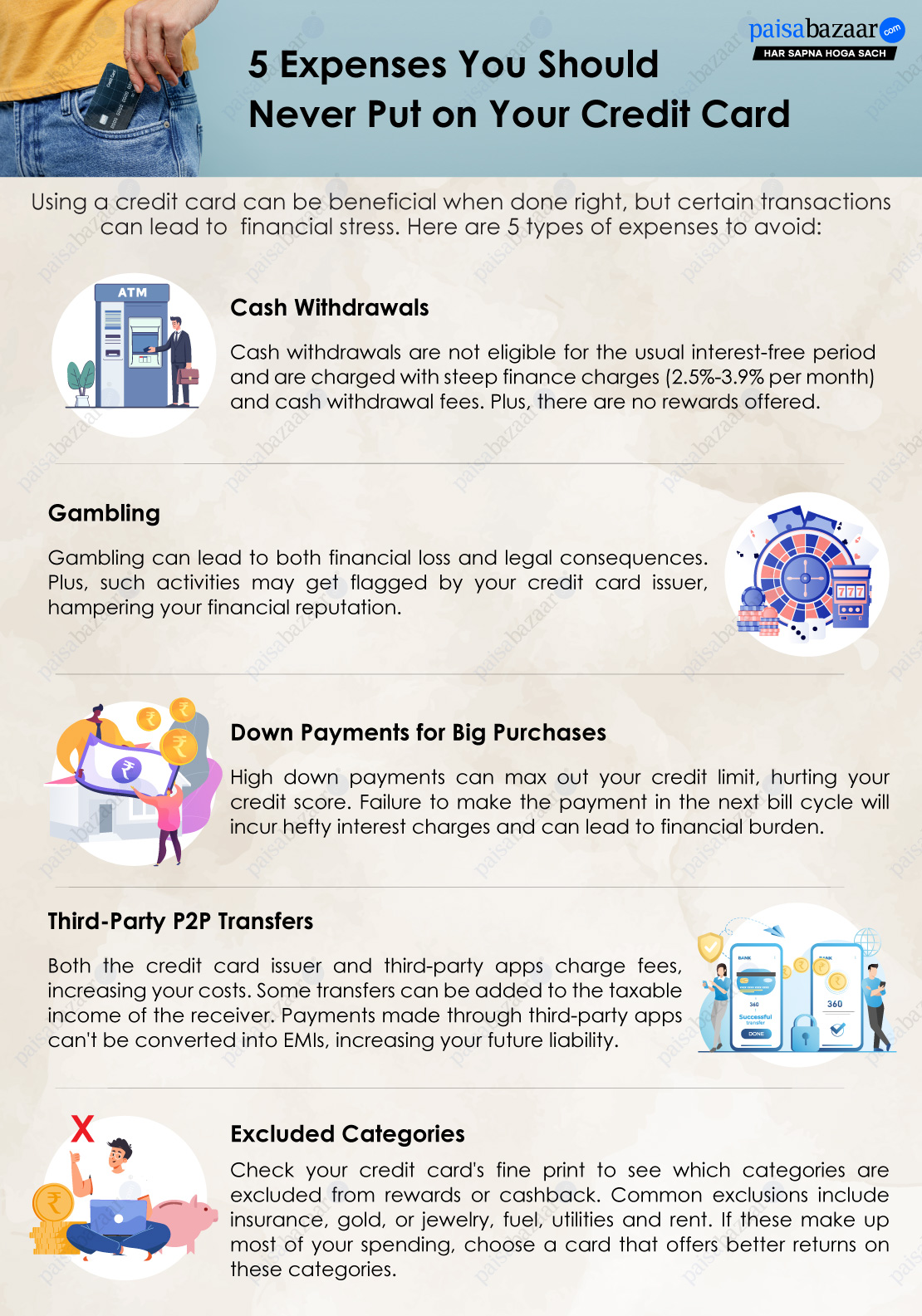Paisabazaar app Today!
Get instant access to loans, credit cards, and financial tools — all in one place
Our Advisors are available 7 days a week, 9:30 am - 6:30 pm to assist you with the best offers or help resolve any queries.
 Get the App
Get the App

Get instant access to loans, credit cards, and financial tools — all in one place

Scan to download on

We often talk about the best ways to use credit cards and make the most of their rewards and benefits. However, it is equally important to know where not to swipe your credit card. Certain transactions, that may seem convenient at the moment, can lead to unnecessary penalties, escalating debt and may even cause long-term damage to your credit score. In this article, we highlight 5 expenses that you must not put on your credit card.

Though credit cards allow cash withdrawal from ATMs, it is a feature you should avoid using, whenever possible. Such transactions are not eligible for the interest-free period and start accruing interest from day one. Moreover, when you withdraw cash, all new transactions also become ineligible for the interest-free period until the withdrawn amount is paid off in full.
Since credit card interest rates or finance charges are quite steep ranging from 2.5% to 3.9% per month, compounded on a daily basis, even a small cash withdrawal can lead to mounting debt.
Cash withdrawal transactions do not earn any rewards nor are they considered for calculation of milestone or renewal benefits, making it a poor choice overall. Hence, you must avoid credit card cash withdrawals unless it is an emergency.
Using a credit card for illegal activities like gambling at a casino is not a good practice. While it could lead to an unhealthy addiction and pile up debt in the long run, it can also land you in legal trouble. In some cases, such activities are also reported to the bureaus, and the issuer might also block your card for future purchases, hampering your financial credibility and reputation in the long run.
Using your credit cards to cover the cost of a high-ticket down payment may seem convenient, especially if you are short on funds, but it comes with significant risk. Large transactions drastically increase your credit utilization ratio, which could temporarily hurt your credit score.
More importantly, you would have to repay the amount by the due date, within the next 20-50 days, leaving you with a huge financial burden. If you fail to pay back the amount by the due date, it will incur steep finance charges and penalties, which could also start a debt cycle. The larger the transaction, the heavier the interest payment. Hence, it is best to avoid putting high value down payments on your card if you are unsure about being able to pay it off timely.
Even though credit cards allow linking to the UPI account, peer-to-peer transfers are not allowed. However, through options like rent or tuition fee transfers, many people find it easy to use credit cards for personal transfers. By all means, such transactions should be avoided. When you transfer rent or education payments through third-party apps (like Cred), you are asked to submit details of the receiver, such as the PAN number, which adds the transferred amount to the total taxable income. Plus, note that such transactions are not free. Both issuers and third-party apps charge a transaction fee here, leaving a cost added to your credit card bill that may impose a higher liability in the upcoming months.
It is important to read the fine print on your credit card to know the often excluded categories from the rewards or cashback program. These may vary from one card to another and may not fetch any value back, unlike general spending. Most of these are big-ticket spends around transactions like insurance, gold, or jewelry, etc. Additionally, some recurring everyday transactions like fuel, utilities, or rent may also be exempted from reward or cashback earning. Thus, if the majority of your purchases are around these categories, it is better to find a card that offers a decent return on these spends rather than using a card that is poorly suited for them.
Bottom Line:
Owning a credit card has both pros and cons. It is the smartest thing to own when used wisely but can also be troublesome if handled irresponsibly. For responsible usage, the golden rule stays the same: ensure spending within your repayment ability, using it only for the amount you can pay back in time. But, at the same time, it is equally important to identify where to use our credit card, just as using the right credit card at the right place is the key to maximizing benefits; avoiding usage at the wrong places is essential to being financially safe and debt-ridden.